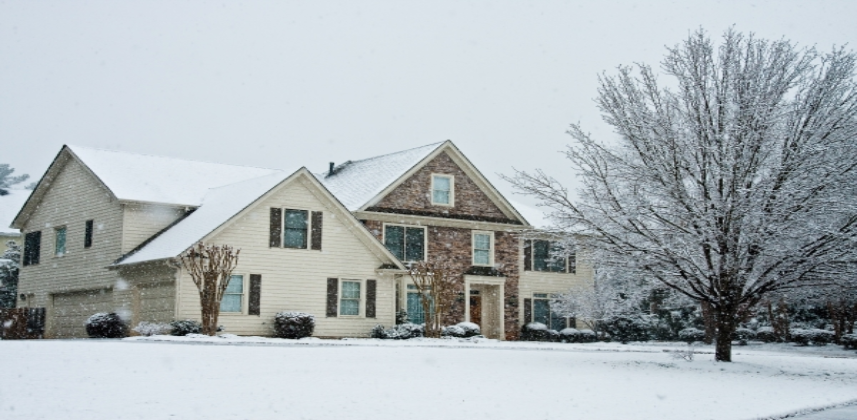
Depending on where you live, Canadian winters can be incredibly harsh. Therefore, it's important to prepare your home before the cold weather sets in. Preparing your home in advance of the cold weather can save you from expensive repairs and ensure you and your family stay safe and warm throughout the season.
One of the most important ways you can winterize your home is by making sure your plumbing system is ready for extreme weather, which can help prevent frozen pipes in winter. In this article, we share some tips on how to prepare your plumbing for the coming Canadian winter.
Why Pipes Burst in Winter
Depending on where you live winter temperatures can reach single digits and remain there for weeks, even months. When this happens it’s not uncommon for pipes to freeze, and in some cases, burst. There are several factors that can impact how your pipes react to cold temperatures.
Frozen Pipes: When metal pipes are exposed to extremely low temperatures for an extended period of time (- 6.66°C), the metal begins to contract. This puts tremendous stress on the structure of the pipe and any liquid that may be in it. Depending on where the pipes are located (inside or outside your home), and how well they are insulated will determine if and when structural damage may occur. Pipes that are exposed to outside temperatures and not well insulated are at greater risk of bursting.
Frozen Water Inside Pipes: Just as the pipes contract in cold weather, the opposite happens to any water inside the pipe. As the water in the pipe freezes, its molecules crystalize and begin to expand. If the water freezes and expands as the metal pipe contracts, pressure begins to build. If this contraction and expansion continue, the increasing pressure eventually causes the pipe to rupture at its weakest point.
How to Keep Water Pipes from Freezing in Winter
While you cannot stop the cold Canadian winter, you can take proactive steps to protect your plumbing from the harsh weather. The following steps can help minimize the risk of your pipes bursting this winter:
- If possible, drain water pipes for the winter (especially irrigation systems that will not be used for several months).
- Wrapping electrical heating tape around any exposed pipes.
- Keeping the thermostat above 15°C at all times (even when you’re away).
- Sealing and insulating exterior walls to minimize heat loss.
- Winterizing outside sprinkler systems (see step 1).
- Move garden hoses into a garage or shed for winter storage.
- Covering hose bibs for winter protection and insulation.
Call in the Pros
A busted pipe can cause considerable damage to your home and property. And you may not even know it until the weather gets warmer. Taking the necessary steps now to minimize the risk of broken pipes is a great way to prevent costly repairs and headaches in the future. If you need advice or help to prepare your plumbing for the Canadian winter, call your local pros at Mr. Rooter. We have the experience and expertise to make sure your plumbing is ready to withstand the cold weather ahead. Call us or visit us online to schedule an appointment.